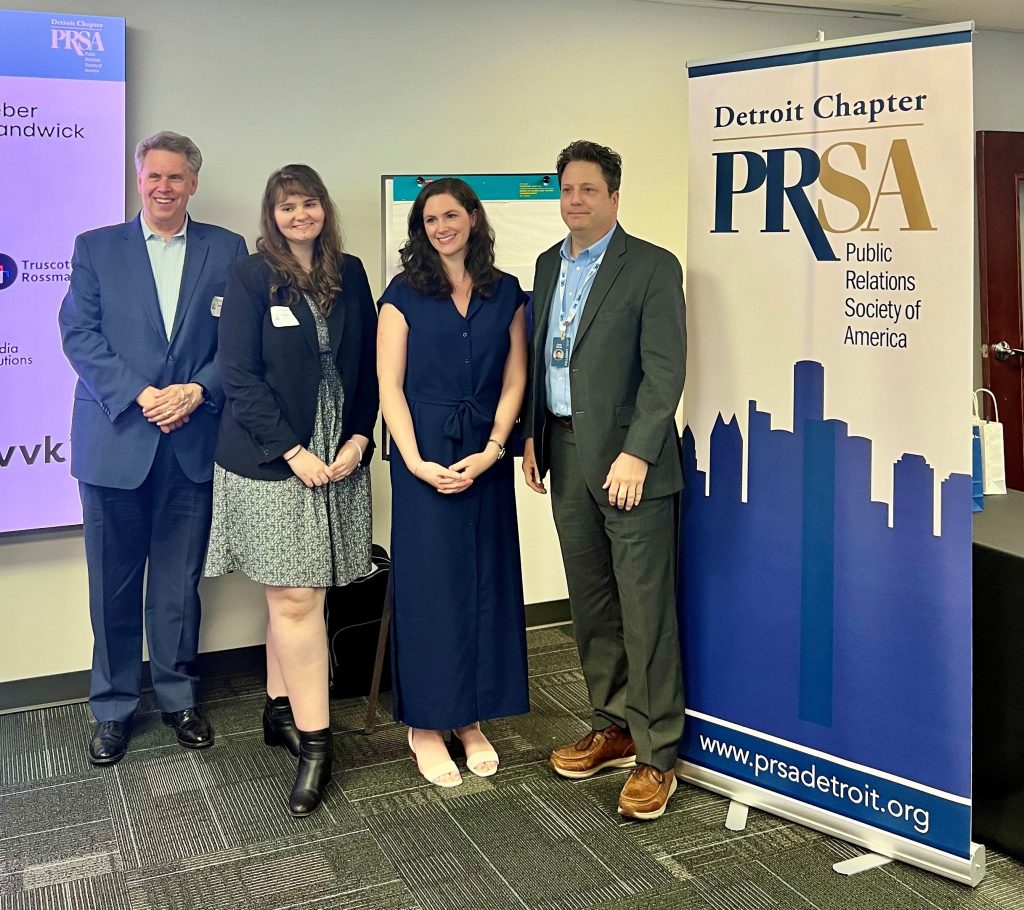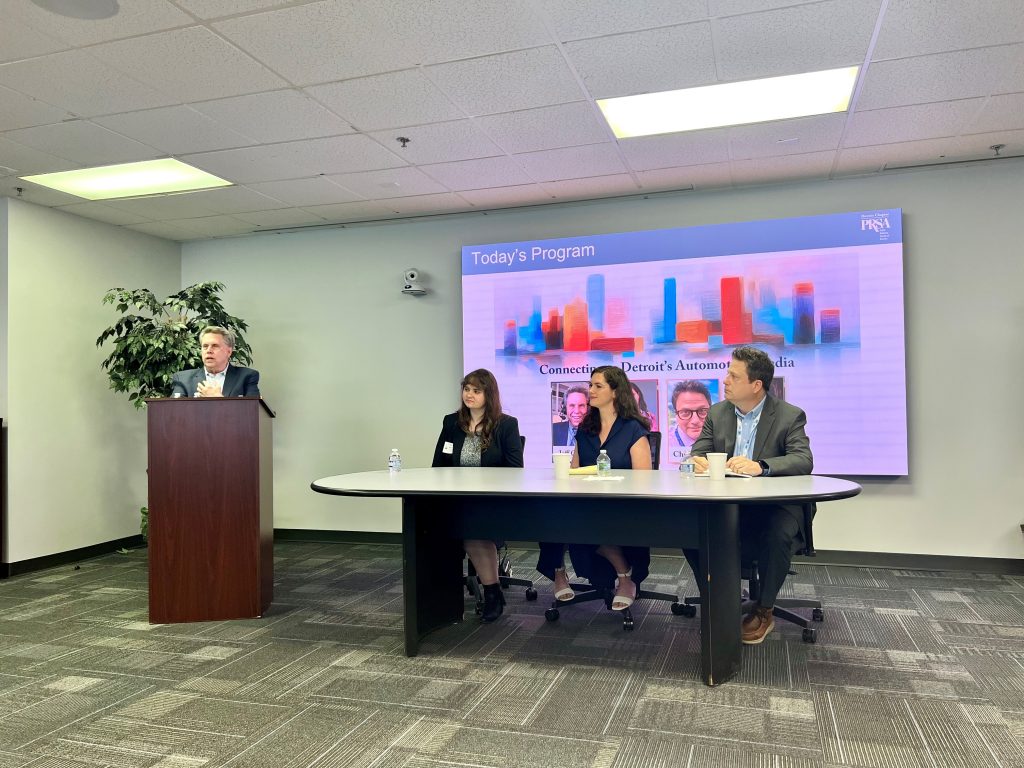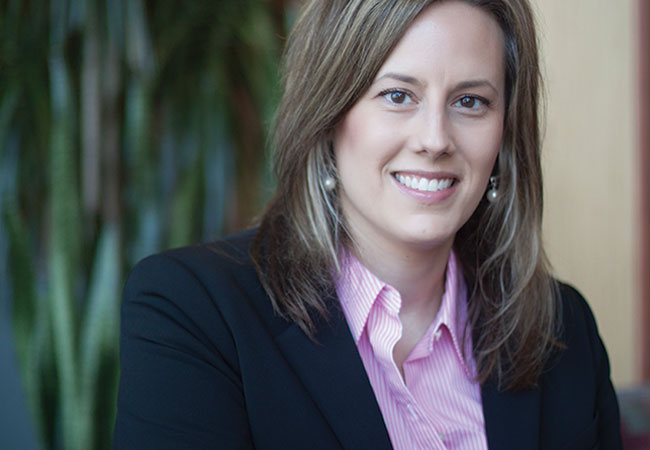880 W. Long Lake Road • Suite 225 •
Troy, Michigan 48098
• P: 248.269.1122 •
E: bianchipr@bianchipr.com

Earlier this week, the Public Relations Society of America’s (PRSA) Detroit chapter presented a special in-person event, Connecting to Detroit’s Automotive Media, where local PR pros were invited to listen to a panel of automotive / mobility journalists to learn more about today’s automotive media scene and what reporters covering the industry want and need most.
Held at the Detroit-area offices of SAE International, the event was moderated by Jeff Gilbert, auto reporter at WWJ Newsradio 950, with Hannah Lutz from Automotive News, Chris Clonts from Automotive Engineering magazine and Breana Noble from The Detroit News serving as the panelists.
The event’s Q&A format between the audience and panel resulted in a lively, informative session, touching on everything from AI and the most-clickable topics to PR pet peeves and news embargoes.
Here are some of our top takeaways:
News stories that focus on electric vehicles, major business plan updates from automakers and Tier 1 suppliers, innovative technologies, new investments / expansions, and announcements that impact industry jobs are some of the most-clicked-on articles across the various media outlets represented on the panel.
For smaller suppliers and start-ups hoping to catch the eye of industry reporters, the feedback from the panel was to make sure you’ve done solid research on the reporter you’re approaching and know their specific beat. That way, you can best tie-in to recent topics and issues they’ve been covering to offer a new perspective for round-up stories and trend pieces.
And as Jeff Gilbert told the room, “Remember that root of the world ‘news’ is NEW.” You might think you have the greatest story in the world but if it’s not new or relevant to a reporter’s listeners, it won’t land.

If your goal is to offer your client as an expert source to a reporter, Jeff shared this advice – don’t try and hide a product pitch when offering up a subject matter expert. Stick to straightforward reasons why your SME can be of help, what insight they can offer and what their credentials are. Trust between PR people and journalists is key, so make sure you’re offering real insight, not just an advertisement! Breana Noble added that arranging a meet and greet with your client / expert ahead of pitching news is something that helps her vet sources.
Hannah Lutz’s advice for PR people sending her news is to be prepared not just when sending a pitch but especially after sending it. Anticipate further questions a reporter might ask. Be ready if a reporter requests an interview or additional statement from your executive, especially in cases of breaking news. Breana added that being timely with your follow-up if you’ve promised additional information to the story is important. Don’t keep a reporter hanging.
On the flip side, Chris Clonts talked about knowing when to let a pitch go. If you’ve sent something over and a reporter lets you know it’s not the right fit for their outlet, end it there and try again next time. Pestering further isn’t helpful and it’s better to come back when you have something that’s a better fit.
When it came to the hot topic of AI, the panel was united across the board that while it may be used for tasks such as transcription, none of their outlets are using it to author any content.
The panel was slightly more mixed in their reactions to the topic of embargoed news. While offering a story under embargo can be helpful in certain instances, the panel members mentioned that they can sometimes lead to problems if they’re not sent far enough in advance, are sent without clear lift dates / times, or if you don’t have executives available for interviews as part of the embargo. This bottom line was stressed – if you’re going to offer an embargo, reach out beforehand to secure an official, detailed agreement with a reporter before sending any materials over.
Lastly, on the topic of industry events and what brings reporters out to cover them, especially with editorial staffs shrinking in size, the panel had a variety of input. The earlier you can give them a heads-up about an event, the better. They will likely have a very limited window of time to attend, so be sure to let them know what they can get out of it beyond the obvious, such as what kind of executive access they’ll have.
Chris added that while large, multi-topic events such as CES can be great to get interaction with companies he may not usually encounter, more focused events that zero-in on specific technologies and topics tend to be better overall.
The panel also commented on the recent trend of automakers investing less in industry shows and instead doing more of their own, personal tech events. As Breana told the room, “We want to be at the industry shows but if automakers put less focus on them, then so do we.”
If you’re a PRSA Detroit member, were you at the event? If so, what was your top takeaway? For those who couldn’t attend, what would be your question for the panel?

Author: Leslie Dagg
Leslie is an account supervisor at Bianchi PR with 23 years of B2B PR experience representing clients across multiple industries.
You might also be interested in: